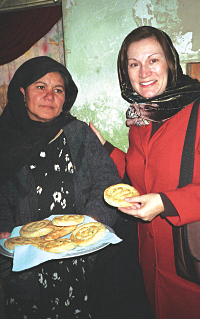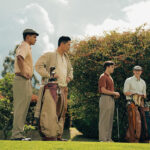
The Abuse Of Afghan Women — And How One UT Alumna Is Helping To Better Lives

The New York Times has a story so wrenching this week that for a few days, this Alcalde editor couldn’t bring herself to read it.
The headline: “For Afghan Wives, a Desperate, Fiery Way Out.” It describes how abused women in Afghanistan — lacking other alternatives and liable to be killed if they try to run away — often try to commit suicide by setting themselves on fire.
The results are horrifying. Sometimes the women die quickly; other times, they die later, through infection. Those who commit suicide elsewhere in the world often choose instantaneous methods — gunshots, jumps. Fire brings excrutiating pain.
But self-immolation is a common form of suicide in Afghanistan. That is partly because even the poorest families have matches and partly because they believe death will come instantly.
These are women who often have no chance for an education, no say in whom they marry, and no choice about their household role —their duty is to serve their husband’s family.
After all that, many feel no hope.
Reading that reminded me of something a UT alumna told me recently. “This is the most abused group of women on the face of the earth,” Connie Duckworth said. After traveling to Afghanistan multiple times, serving on the U.S.-Afghan Women’s Council, and becoming more of an expert on the country than most foreigners ever could be, she knows.
Duckworth, BA ’76, Life Member, is also doing something about it.
She left a high-powered Wall Street career to found Arzu Studio Hope, which pays hundreds of Afghan women — directly and well — to weave rugs.
There are conditions for their households, though: all women living there must attend literacy classes and get prenatal care if they are expecting, and all children must attend school, with their attendance verified.
That is because the country’s female illiteracy rate is 86 percent; prenatal care is rarely administered there; and children, especially girls, often do not stay in school.
And so Arzu (which means “hope” in Dari) not only helps these women make a living, it also helps them raise their status in the household and change their family’s circumstances.
Here’s our story on Duckworth and some of her words about improving the rights of women in Afghanistan.
It’s not enough to help all Afghan women, as the story about suicide shows. Duckworth is reaching women whose households are willing to make changes, after all, and so she is less likely to reach those in the most desperate and abused cases.
But I hope that, as it did for me, learning about Duckworth’s work gives you a glimmer of optimism for the women of that country.
Photo: Connie Duckworth, right, with an Afghan war widow who runs a bakery. Courtesy of Arzu Studio Hope.










1 Comment